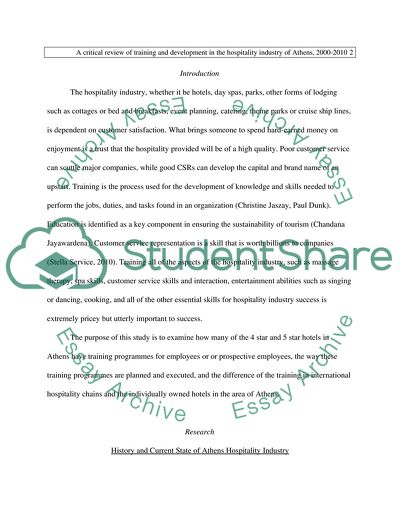Cite this document
(Development of the Hospitality Industry of Athens Research Paper - 1, n.d.)
Development of the Hospitality Industry of Athens Research Paper - 1. Retrieved from https://studentshare.org/tourism/1748109-a-critical-review-of-training-and-development-in-the-hospitality-industry-of-athens-2000-2010
Development of the Hospitality Industry of Athens Research Paper - 1. Retrieved from https://studentshare.org/tourism/1748109-a-critical-review-of-training-and-development-in-the-hospitality-industry-of-athens-2000-2010
(Development of the Hospitality Industry of Athens Research Paper - 1)
Development of the Hospitality Industry of Athens Research Paper - 1. https://studentshare.org/tourism/1748109-a-critical-review-of-training-and-development-in-the-hospitality-industry-of-athens-2000-2010.
Development of the Hospitality Industry of Athens Research Paper - 1. https://studentshare.org/tourism/1748109-a-critical-review-of-training-and-development-in-the-hospitality-industry-of-athens-2000-2010.
“Development of the Hospitality Industry of Athens Research Paper - 1”, n.d. https://studentshare.org/tourism/1748109-a-critical-review-of-training-and-development-in-the-hospitality-industry-of-athens-2000-2010.


